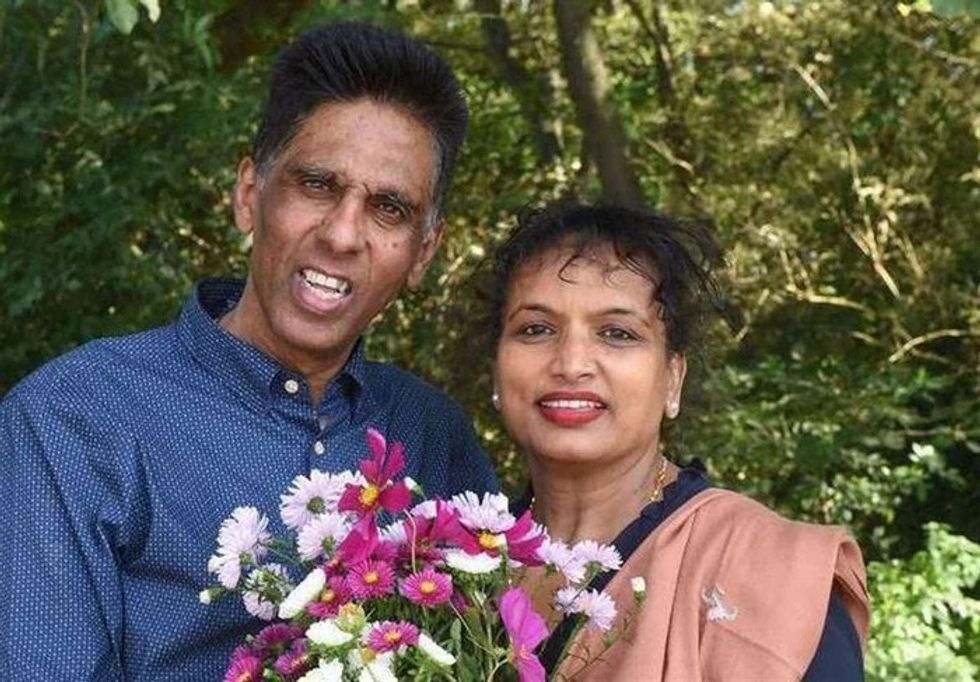Eight in every 10 or about 77 per cent of Sikhs in Britain find their lives stressful, revealed the sixth annual British Sikh Report.
The report was launched on April 25 in a bid to raise awareness on mental health issues within the community.
As per the report, about 80 per cent of Sikh women and 68 per cent of Sikh men admit to knowing someone who has experienced mental health issues within the community in the past one year. About 35 per cent of Sikhs blamed their jobs for giving them stress and 27 per cent said stress was due to family responsibilities.
“Poor mental health can impact people of all faiths and backgrounds and it is encouraging to see this report raising awareness of this issue among British Sikhs,” Nick Bourne, minister for faith and integration, said.
“Sikhs everywhere should be proud of this report in not shying away from difficult subjects. I encourage everyone to read these findings carefully and continue to support this excellent and challenging work,” he added.
Jasvir Singh, chair of the British Sikh Report, added: “Mental health has been a taboo subject for Sikhs for years. This data helps us understand what the challenges are, and with three quarters of Sikhs knowing someone with poor mental health, it’s clear that this is something that affects all of us.”
“Knowledge about the prevalence of poor mental health within the community is the first step towards changing things for the better,” he added.
UK has a 432,000 strong Sikh population, and as per the report, 10 per cent of Sikh women and five per cent of men from the community have been diagnosed with mental health issues.
Dr Jagbir Jhutti-Johal, a senior lecturer in theology and religion at the University of Birmingham, wrote in an article commissioned by the British Sikh Report, noting that the vocabulary of the older Sikh generation do not resonate with the western biomedical terms for mental illness. “Within the Punjabi language there is no word for mental illness or depression. Metaphors and proverbs such as ‘my heart is heavy’, ‘my head is heavy’ and ‘sinking heart’ are common in the vocabulary of the older generation," Jhutti-Johal noted, reported the Times of India.
The lecturer also pointed out that some Sikhs in the UK visit Hindu priests and Muslim spiritual guides to cure mental illness and this attitude has resulted in depression, anxiety, stress and other mental health issues to be seen as a sign of weakness.
"This internal wall of silence in turn has also meant that the Sikh community has been viewed externally as a success story - families successful in education, employment and business, enjoying 'perfect' lives when actually, if we scratch at the veneer of this successful community, problems of depression and mental ill health soon present themselves," she wrote.


















 Davindra and Seema Misra, and Vijay and Gita Parekh
Davindra and Seema Misra, and Vijay and Gita Parekh Varchas Patel with his father Vipin and mother Jayshriben
Varchas Patel with his father Vipin and mother Jayshriben Hasmukh Shingadia and his wife Chandrika were all victims of the Horizon scandal
Hasmukh Shingadia and his wife Chandrika were all victims of the Horizon scandal
During the hearing, Clifford denied all the charges except for the rape charge, which was added to the indictment at the session. (Photo: Hertfordshire Police /Handout via REUTERS)
Man pleads not guilty to murder of BBC presenter's family
A 26-year-old man has pleaded not guilty to charges of murdering the wife and two daughters of BBC sports commentator John Hunt in a crossbow and knife attack.
Kyle Clifford, who also faces charges of rape, appeared via video link at Cambridge Crown Court on Thursday.
Clifford, arrested in July after a manhunt, is charged with three counts of murder, one count each of rape and false imprisonment, and two counts of possessing offensive weapons – a 10-inch knife and a crossbow.
During the hearing, Clifford denied all the charges except for the rape charge, which was added to the indictment at the session.
He is expected to enter a plea for that charge at a later date.
The victims were Carol Hunt, 61, wife of horseracing commentator John Hunt, and their daughters Louise, 25, and Hannah, 28.
An earlier hearing revealed that Louise had been found tied up and that both she and her sister had been shot with a crossbow, while their mother had been stabbed with a knife.
The fatal attack occurred at the family’s home in Bushey, a commuter town near Watford, northwest of London.
(With inputs from AFP)